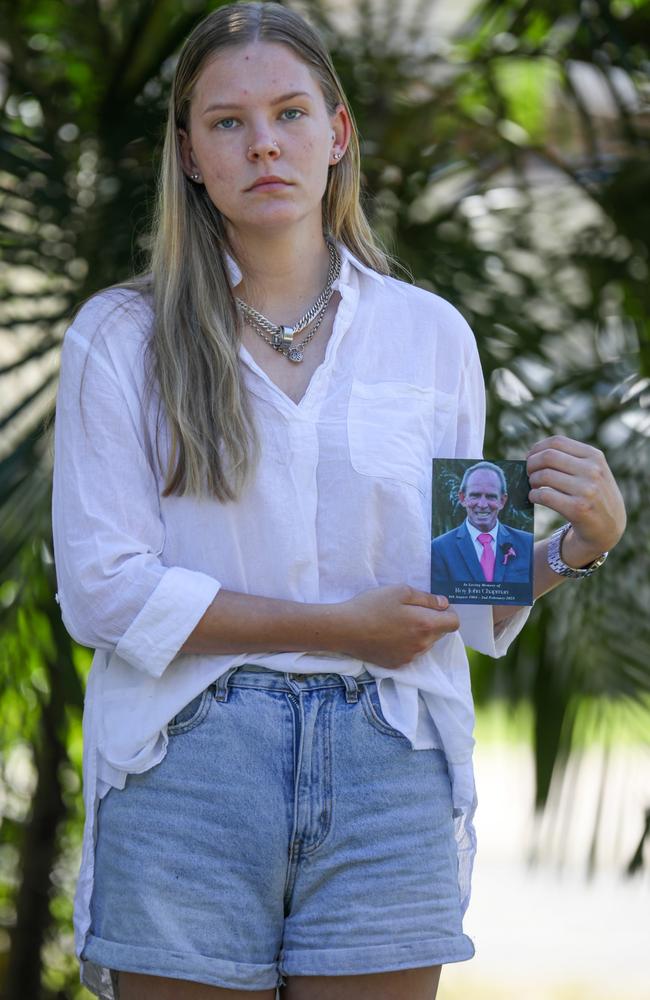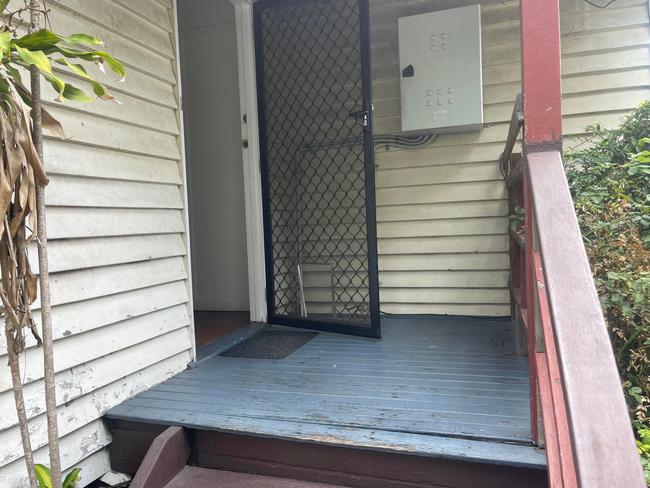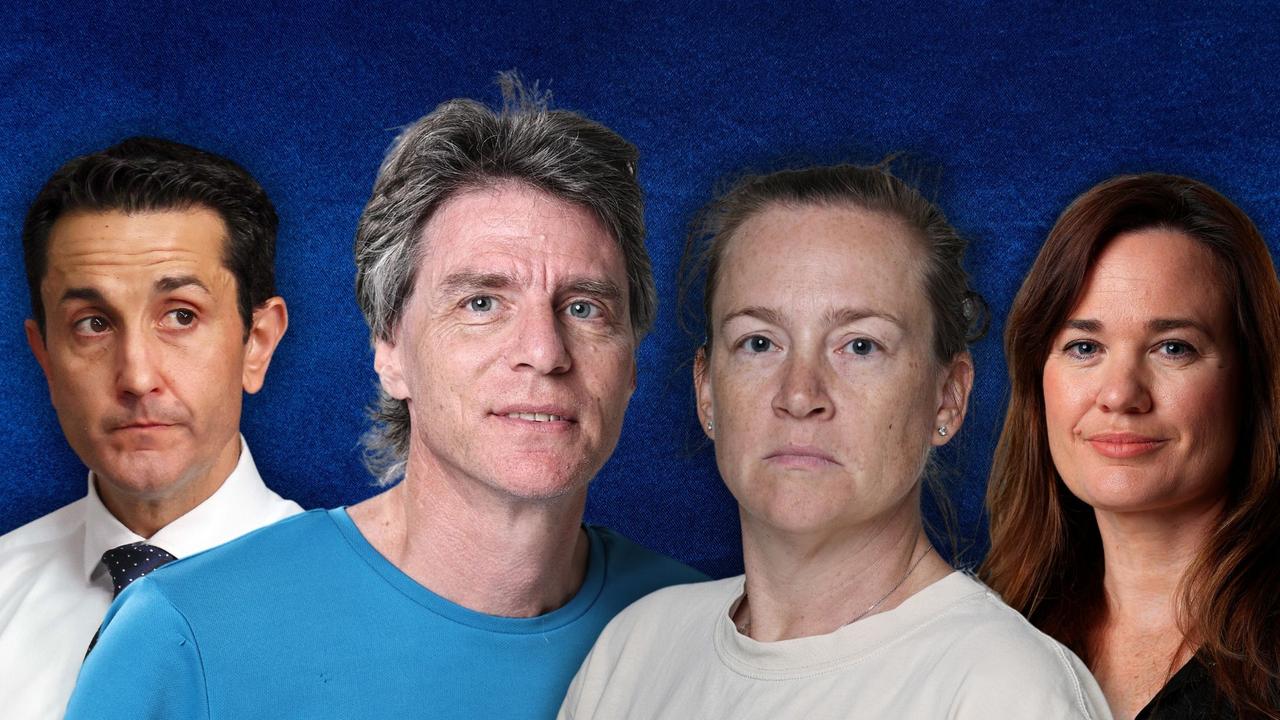NDIS fail: Disabled in limbo as supported independent living placements refused
A Queensland woman believes her father would still be alive today if the NDIS had not refused to provide additional funding for supported independent living.

QLD Politics
Don't miss out on the headlines from QLD Politics. Followed categories will be added to My News.
A Queensland woman believes her father would still be alive today if the NDIS had not refused to provide additional funding for supported independent living.
Roy Chapman, 58, died on February 2, just months after allied health professionals had deemed him a “significant risk” without 24/7 support.
An NDIS functional capacity assessment carried out by an occupational therapist and sighted by The Courier-Mail from August 2022 stated: “Mr Chapman has a diagnosis of rheumatoid arthritis and neurodegeneration with brain iron accumulation.
“Mr Chapman requires the provision of 24-hour support as a result of his disability, to ensure his safety, including inactive overnight support.”
Mr Chapman’s daughter Kayla Chapman said the official cause of death was “aspiration pneumonia consistent with multiple drug toxicity and neurodegenerative disease”.
It is understood Mr Chapman was initially granted access to the NDIS in February 2022, but the $16,000 plan was “highly inadequate”.
Brisbane-based disability provider Your Choice Support has received many cries for help and changed their model to set aside profit funding to be used for pro-bono crisis situations.
Your Choice Support director Michelle Davies-Clark said on November 22, the NDIS home and living team chose to disregard the professional opinion of allied health professionals and denied Mr Chapman funding for supported independent living.
“If Roy had SIL funding, he almost certainly wouldn’t be dead right now but we also have another young man who clearly needs SIL funding, it’s been going on for nearly two years. He almost killed himself two weeks ago,” she said.

The assessment revealed that Mr Chapman’s home environment was “not suitable for his current mobility status, leading him to be a high falls risk”.
It was also reported that Mr Chapman often forgot appointment times and to take his medication, and that he engaged in unsafe behaviour, including trying to ride his mobility scooter into oncoming traffic on a motorway and trying to drill a hole into his head to minimise the pain he was experiencing.
“Due to Mr Chapman’s current hand deformities, he has difficulty engaging in leisure activities that he once enjoyed, which significantly impacts his mental health,” the assessment read.
The assessment recommended Mr Chapman receive 24/7 monitoring to ensure he did not harm himself “as he has previously done so”.
Mr Chapman presented to the GP with a chest infection and was given antibiotics on January 15 but the following day his support worker arrived to find that the 58-year-old had split his head open in a fall.
On January 17, Mr Chapman’s support worker again arrived to an empty home and later discovered the 58-year-old had been admitted to hospital with breathing difficulties after possibly taking excess medication.
Mr Chapman was intubated and admitted to the intensive-care unit but later died in hospital.
Ms Chapman submitted a formal complaint to the NDIS on February 8, with her concerns escalated with the NDIA.
“When we went into his home when he was in hospital we found pills everywhere, blood on his bedside table... I can’t say 100 per cent that his death could have been prevented, but the circumstances leading up to could have been,” she said.

Asked about the current supported accommodation model, Ms Davies-Clark said there was a huge amount of wastage in the NDIS that needed to be addressed.
An NDIA email sighted by The Courier-Mail read: “As discussed, although health professionals provide advice regarding participant support needs, NDIA delegates need to make their decision within the parameters of the National Disability Insurance Scheme Act 2013 (NDIS Act) and associated rules.
“They of course consider the professional recommendations but still must operate within the legislative boundaries they are bound by... I understand this doesn’t always result in the outcomes a participant or their health professionals hope for.”
But Ms Davies-Clark said: “It is perfectly obvious to anybody who has reviewed the reports that the qualified OT and support co-ordinator submitted that Mr Chapman needed significantly more support than an unqualified member of the Home and Living Team appreciated.
“The NDIS often ignores the recommendations of the health professionals it pays to write the reports.
“If Roy had been in SIL as repeatedly recommended, his medication would have been administered safely by staff and not available for him to accidentally take excess amounts.
“Everyone working in the industry will know that sadly, Roy’s case was not an isolated incident.”
National Disability Services director of policy and advocacy Emily Forrest said: “The current supported accommodation model is not meeting the needs of some people with disability and is not enabling providers to be responsive to participant changing circumstances.”
An NDIA spokesman said: “The NDIA’s priority is ensuring participants and their families receive the disability-related supports they need.”




